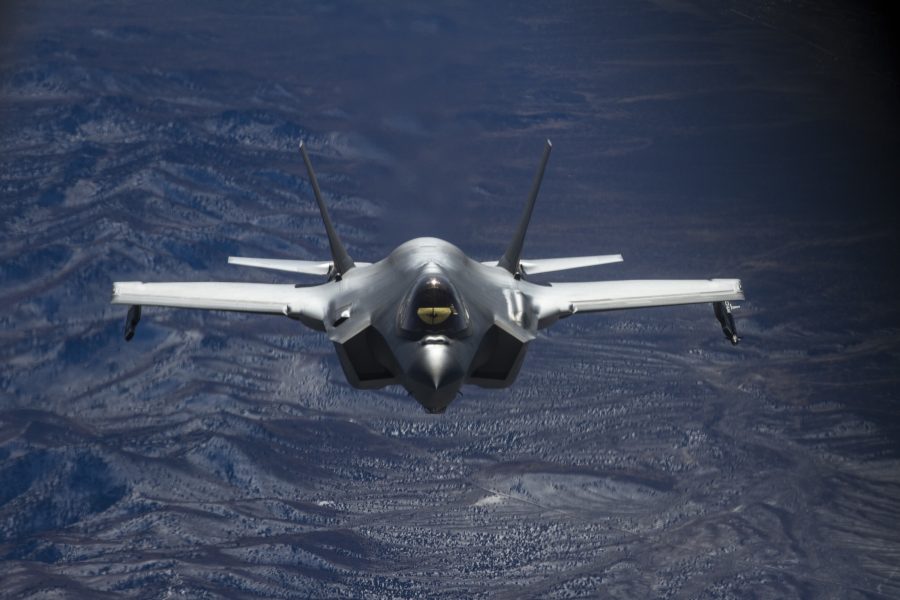ORLANDO, Fla.—It’s still not known how many F-35 fighters were assembled with mixed-up Inconel and titanium fasteners, but Lockheed Martin’s analysis shows no safety of flight risk that would require dedicated fleetwide inspections. Steps have been taken to prevent the problem from recurring, company Vice President and Program Manager Greg Ulmer said Feb. 27.
Speaking at a press conference during AFA’s Air Warfare Symposium in Orlando, Fla., Ulmer said the company has submitted its report to the Defense Contract Management Agency explaining the cause and correction of the problem, which prompted the Pentagon to halt F-35 deliveries temporarily in November. Workers had been returning handfuls of leftover titanium bolts to the wrong bin, where they mixed with the much more durable and costly—but visually almost identical—Inconel bolts. The titanium bolts are strong and light, but were not meant to bear the load of the Inconel bolts, which are a much heavier alloy.
Each F-35 has as many as 51,000 fasteners of the two types, and until Lockheed’s analysis confirmed no risk to flight safety, the possibility existed that each aircraft would have to be checked for mis-installed parts.
Ulmer said once the problem was detected, the rest of the aircraft in the factory at that time were checked for improper fasteners in the wrong positions. Inspectors didn’t find very many aircraft “that had a high percentage of mis-installation,” he said.
An engineering analysis was then done to determine the risk to flight, assuming that an aircraft somehow had “100 percent of the installations … incorrect,” he reported. The result was that even with the weaker bolts, the aircraft could sustain 131 percent of the design limit load.
Above 100 percent of the design limit load, “you’re going to bend the airplane,” he said. Even in that worst case scenario, “we have high confidence in the integrity of the vehicle.” Given that, the DCMA agreed with Lockheed that inspections of the fleet going back to early production are not necessary. “It was deemed not a risk,” he added.
To prevent further co-mingling, Inconel fasteners are now issued in baggies, and only in the amount necessary for a given step in production, so there should be no leftovers, Ulmer said. Two inspections are also required, by the installer and a supervisor, to ensure the right fasteners are used. Lockheed is also considering color-coding the fasteners so they are more readily distinguishable from one another, he said.

